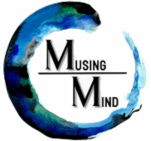
New Essay
I recently caught scent of a Michel Foucault book titled Technologies of the Self.
Exciting, I thought. ‘Technologies’ rings of practicality, while ‘of the self’ implies the contemplative context I love. Foucault’s definition of this term, as given by Wikipedia, only stoked my excitement for the book:
“Foucault defined technologies of the self as techniques that allow individuals to effect by their own means a certain number of operations on their own bodies, minds, souls, and lifestyle, so as to transform themselves in order to attain a certain state of happiness, and quality of life.”
But after reading it, I closed the book disappointed. It was scarcely an inventory of ‘technologies’, or practices, for living well (the centrality of practices to living well being a topic I took up in my last essay). It was more theory than practice, doing little to suggest possibilities for how I might fill the constituent hours of a day. It read more as a brief historical survey of past ‘technologies’.
So, in light of this, I wrote my own version. A revisionist writing of Foucault’s incomplete “Technologies of the Self”.
I see this less as an essay, more as a document that will live, breathe, and grow alongside me. I created (arbitrary) domains of life, each with a bullet list of practices for that domain. The notion of creating a robust list of this kind is absurd, and yet, here we are. Suggestions to grow the list are most welcomed.
Brief Book Review

Geoff Dyer’s But Beautiful composes seven portraits of jazz titans into a cross-genre blend of fiction & nonfiction (Dyer rejects the entire notion of ‘genres’, instead thinking of a book as a book, words as words, etc. He elaborates in his interview with The Paris Review).
It reads like the music it pursues, itself becoming the 8th portrait in the composition, that of Dyer’s written song. I began reading it to experience an author who rejects genres, a notion that attracts me, but I finished it because his jazz swept me up - rich, sultry, and disarming. Each portrait a depiction of raw human experience, whether exhaled through a horn or a pen.
Aldous Huxley’s Q & A as Antidote for the Unquestioned Habitual Patterns of Drudgery Modern Work Culture Normalizes
I bought a random Aldous Huxley novel before work, Those Barren Leaves, flipped to a random page, and found this short Q&A he stages between two characters. It’s relevance was startling. I wrote a little commentary on it here, but here’s full Q&A without my notes:
“Those who chafe at the tameness an sameness of office life, who pine for a little excitement to diversify the quotidian routine, should experiment with this little recipe of mine…All you have got to do is to pause for a moment in your work and ask yourself: Why am I doing this? What is it all for? Did I come into the world, supplied with a soul which may very likely be immortal, for the sole purpose of sitting every day at this desk?…
Q: Why am I working here?
A: In order that Jewish stockbrokers may exchange their Rovers for Armstrong-Siddeleys, buy the latest jazz records and spend the week-end at Brighton.
Q: Why do I go on working here?
A: In the hope that I too may some day be able to spend the week-end at Brighton.
Q: What is progress?
A: Progress is stockbrokers, more stockbrokers and still more stockbrokers.
Q: What is the aim of social reformers?
A: The aim of social reformers is to create a state in which every individual enjoys the greatest possible amount of freedom and leisure.
Q: What will the citizens of this reformed state do with their freedom and leisure?
A: They will do, presumably, what the stockbrokers do with these things to-day, e.g. spend the week-end at Brighton, ride rapidly on motor vehicles and go to the theatre.
Q: On what condition can I live a life of contentment?
A: On the condition that you do not think.
Q: What is the function of newspapers, cinemas, radios, motor-bikes, jazz bands, etc.?
A: The function of these things is the prevention of thought and the killing of time. They are the most powerful instruments of human happiness.
Q: What did Buddha consider the most deadly of the deadly sins?
A: Unawareness, stupidity.
Q: And what will happen if I make myself aware, if I actually begin to think?
A: Your swivel chair will turn into a trolley on the mountain railway, the office floor will gracefully slide away from beneath you and you will find yourself launched into the abyss.
Down, down, down! The sensation, through sickening, is really delightful. Most people, I know, find it a little too much for them and consequently cease to think, in which case the trolley reconverts itself into the swivel chair, the floor closes up and the hours at the desk seem once more to be hours passed in a perfectly reasonable manner; or else, more rarely, flee in panic horror from the office to bury their heads like ostriches in religion or what not…”
Reading From Around the Internet
Consciousness Began When the Gods Stopped Speaking
How Julian Jaynes’ famous 1970s theory is faring in the neuroscience age.
By VERONIQUE GREENWOOD in Nautilus Magazine
An article on Julian Jaynes’ theory of consciousness. His theory, in an incomplete nutshell:

What remains of value in Jaynes’ theories appears to be less the logic of his system itself than the passion that comes forth in his work. Anyone passionate enough to devote their life to a theory of consciousness bears a contagious itch of inquiry into the human condition, and Jaynes’ itch is well spoken for in his work:

Introducing Ecobehavioral Design
By Mark James in The Side View
The Side View is a new media platform that treats attention & perception as trainable skills, a platform on which I’ve previously published an essay on ‘Culturing Consciousness’.
In this essay, Mark James lays out an approach to behavior design that treats humans as ecological in nature, and behavior itself as a relational term between persons and their environments (though, again, ultimately viewing the distinction as false).
Logistics/Feedback
I’ve transitioned the newsletter from Mailchimp to Substack. I did so in pursuit of a simpler, more unobstructed writing experience, which hopefully translates into the reading experience as well. That being said, while I adjust, I’d appreciate a heads up on any glitches, design flaws, possible improvements, etc. via contact form below. Thanks!
Also. As it’s beginning to grow, I’m thinking about changing the newsletter’s name from ‘The MusingMind Newsletter’ to ‘Mind Matters’. Giving the newsletter a little more life (and title) of its own, but remaining an offshoot of the website. Feedback welcomed.
As always, feel free to reach out for any reason, or check out the full website: www.MusingMind.org
Thanks for reading, carry on.
Oshan